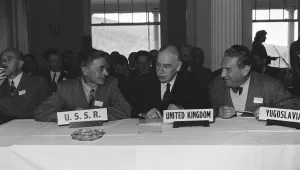International Security is America's leading peer-reviewed journal of security affairs.
Summary
The tenth anniversary of India’s and Pakistan’s 1998 nuclear tests enables scholars to revisit the issue of South Asian proliferation with a decade of hindsight. What lessons do the intervening years hold regarding nuclear weapons’ impact on South Asian security? Some scholars claim that nuclear weapons had a beneficial effect during this period, helping to stabilize historically volatile Indo-Pakistani relations. Such optimistic analyses of proliferation’s regional security impact are mistaken, however. Nuclear weapons have had two destabilizing effects on the South Asian security environment. First, nuclear weapons’ ability to shield Pakistan against all-out Indian retaliation, and to attract international attention to Pakistan’s dispute with India, encouraged aggressive Pakistani behavior. This, in turn, provoked forceful Indian responses, ranging from large-scale mobilization to limited war. Although the resulting Indo-Pakistani crises did not lead to nuclear or full-scale conventional conflict, such fortunate outcomes were not guaranteed and did not result primarily from nuclear deterrence. Second, these Indo-Pakistani crises led India to adopt a more aggressive conventional military posture toward Pakistan. This development could exacerbate regional security-dilemma dynamics and increase the likelihood of Indo-Pakistani conflict in years to come. Thus nuclear weapons not only destabilized South Asia in the first decade after the nuclear tests; they may damage the regional security environment well into the future.
Kapur, S. Paul. “Ten Years of Instability in a Nuclear South Asia.” Fall 2008
The full text of this publication is available in the link below.



